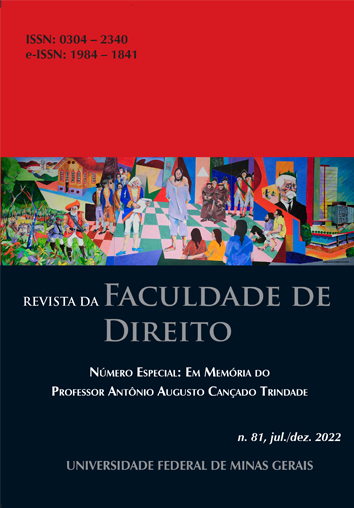THE LEGACY OF CANÇADO TRINDADE FOR A NEW JUS GENTIUM - DOI: 10.12818/P.0304-2340.2022v81p467
DOI:
https://doi.org/10.12818/P.0304-2340.2022v81p467Abstract
The thought of Cançado Trindade can
be considered an important watershed for
international law at the end of the 20th
century and the beginning of the 21st century.
Classical international law, whose origins
date back to the Peace of Westphalia, was
conceived according to the dominant culture
in Western Europe and has always had
as one of its main pillars the principles of
sovereignty and non-intervention. However,
especially after the Second World War, the
reorganization of international society
brought important changes to it. The entry of
human rights on the scene was decisive for the
construction of a new international law, which
has as landmarks the creation of the United
Nations, the emergence of international
criminal law and the strengthening of regional
systems of protection. From this perspective,
the present research intends to analyze this
process of transformation, having as a guide
some postulates of the thought of Cançado
Trindade, whose theories contributed to the
humanization of international law and of
what he himself called a new jus gentium. To
this end, the research uses the hypotheticaldeductive
method, insofar as it starts from
the premise that some teachings of Cançado
Trindade were decisive in conceiving a new
international law, of a cosmopolitan nature,
whose incidence is gradually felt in the
judgments of the International Courts.
Downloads
Published
Issue
Section
License
Copyright (c) 2023 REVISTA DA FACULDADE DE DIREITO DA UFMG

This work is licensed under a Creative Commons Attribution-NonCommercial 4.0 International License.




















